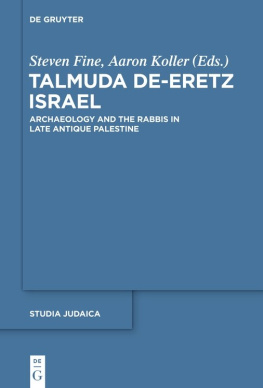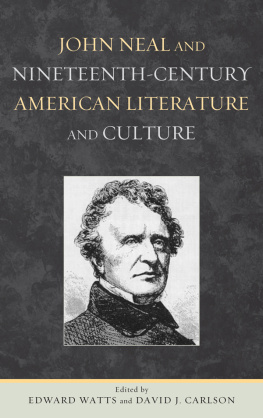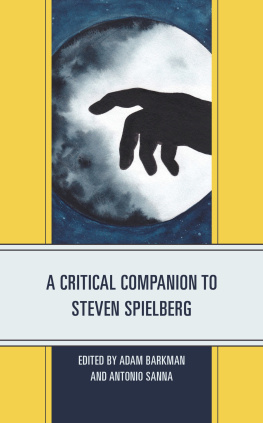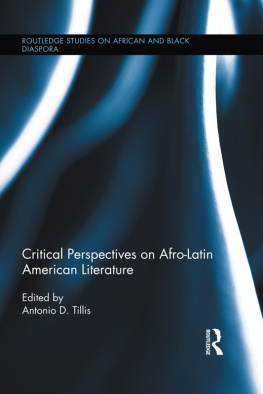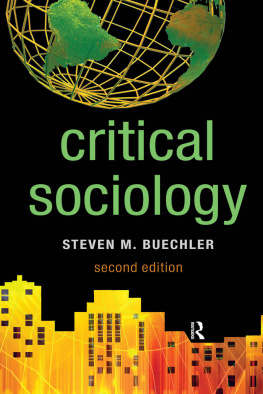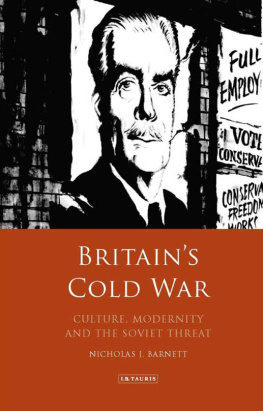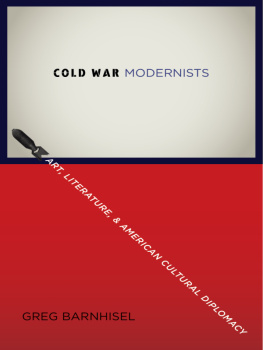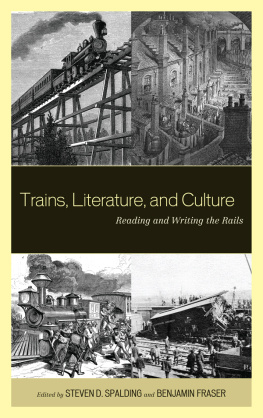Belletto Steven - American Literature and Culture in an Age of Cold War: A Critical Reassessment
Here you can read online Belletto Steven - American Literature and Culture in an Age of Cold War: A Critical Reassessment full text of the book (entire story) in english for free. Download pdf and epub, get meaning, cover and reviews about this ebook. year: 2012, publisher: University of Iowa Press, genre: Politics. Description of the work, (preface) as well as reviews are available. Best literature library LitArk.com created for fans of good reading and offers a wide selection of genres:
Romance novel
Science fiction
Adventure
Detective
Science
History
Home and family
Prose
Art
Politics
Computer
Non-fiction
Religion
Business
Children
Humor
Choose a favorite category and find really read worthwhile books. Enjoy immersion in the world of imagination, feel the emotions of the characters or learn something new for yourself, make an fascinating discovery.

- Book:American Literature and Culture in an Age of Cold War: A Critical Reassessment
- Author:
- Publisher:University of Iowa Press
- Genre:
- Year:2012
- Rating:4 / 5
- Favourites:Add to favourites
- Your mark:
- 80
- 1
- 2
- 3
- 4
- 5
American Literature and Culture in an Age of Cold War: A Critical Reassessment: summary, description and annotation
We offer to read an annotation, description, summary or preface (depends on what the author of the book "American Literature and Culture in an Age of Cold War: A Critical Reassessment" wrote himself). If you haven't found the necessary information about the book — write in the comments, we will try to find it.
American Literature and Culture in an Age of Cold War: A Critical Reassessment — read online for free the complete book (whole text) full work
Below is the text of the book, divided by pages. System saving the place of the last page read, allows you to conveniently read the book "American Literature and Culture in an Age of Cold War: A Critical Reassessment" online for free, without having to search again every time where you left off. Put a bookmark, and you can go to the page where you finished reading at any time.
Font size:
Interval:
Bookmark:
American Literature and Culture in an Age of Cold War
American Literature and Culture in an Age of Cold War
A CRITICAL REASSESSMENT
EDITED BY STEVEN BELLETTO AND DANIEL GRAUSAM
UNIVERSITY OF IOWA PRESS
IOWA CITY
University of Iowa Press, Iowa City 52242
Copyright 2012 by the University of Iowa Press
www.uiowapress.org
Printed in the United States of America
Design by Richard Hendel
No part of this book may be reproduced or used in any form or by any means without permission in writing from the publisher. All reasonable steps have been taken to contact copyright holders of material used in this book. The publisher would be pleased to make suitable arrangements with any whom it has not been possible to reach.
The University of Iowa Press is a member of Green Press Initiative and is committed to preserving natural resources.
Printed on acid-free paper
Library of Congress Cataloging-in-Publication Data
American literature and culture in an age of cold war: a critical reassessment / edited by Steven Belletto and Daniel Grausam.
p. cm.
Includes bibliographical references and index.
ISBN-13: 978-1-60938-113-4 (pbk)
ISBN-10: 1-60938-113-0 (pbk)
ISBN 978-1-60938-144-8 (e-book)
1. American literature20th centuryHistory and criticism. 2. Cold War in literature. I. Belletto, Steven. II. Grausam, Daniel, 1975
PS228.C58A44 2012
810.93582825dc23 2012006953
CONTENTS
Steven Belletto and Daniel Grausam
William J. Maxwell
Catherine Gunther Kodat
Daniel Belgrad
Andrew Hoberek
Karen Steigman
Christine Hong
Leerom Medovoi
Alan Nadel
ACKNOWLEDGMENTS
We would like to thank our contributors for their generosity and labor, and for their patience as we were completing this volume. Charlotte Wright and the entire staff at the University of Iowa Press have been wonderful. Special thanks go to Joe Parsons, both for his initial interest and for his ongoing support and wise counsel.
INTRODUCTION
CULTURE AND COLD CONFLICT
STEVEN BELLETTO AND DANIEL GRAUSAM
What Is Cold War Culture?
When in June of 2010 news broke concerning a longterm undercover Russian spy operation in the United States, the media had their summer blockbuster. Nearly every news story or radio broadcast featured some variation of not since the Cold War, mused about whether the conflict had ever really ended, and commented on the oddity of this espionage ring. The television critic for the New York Times, for one, noted the aesthetic shape of the quaint, Cold Warstyle spy operation, and joked that there would soon be a Real Russian Spies of New Jersey reality show. The story soon emerged: nearly a dozen Russian agents had been under deep cover in the United States, tasked with integrating themselves into American society. Some did so by becoming average members of the American middle class, and in some cases so complete was their transformation that their identity started to seem the end, rather than the means, of their mission.
It was all textbook Cold War thriller, if indeed a bit quaint-seeming: hadnt we seen this all before? The Rosenbergs. Klaus Fuchs. Aldrich Ames. Werent spies supposed to be from a bygone era? And yet there was the espionage ring in all its pulp glorythe Newsweek headline announced that it was Part John le Carr, Part Austin Powers. It was as if the Russian spies were taking their cues from film, rather than the other way around: as the employer of one of the accused noted, the story seemed straight from a movie.
Directed by Phillip Noyce, who brought Tom Clancys Clear and Present Danger and Patriot Games to the silver screen in the 1990s, Salt seemed almost too fitting in the summer of 2010. Part seat-of-the-pants thriller, part feminized reworking of Bond ingenuity, part kitsch (there is a secret Russian castle where child agents train in isolation), the film paralleled the real spy ring: on the one hand it was deadly serious, on the other it was too campy to be believable. The frightening possibility of losing control of the American nuclear arsenal coexisted with scenes of children lining up to kiss the ring of their grizzled Soviet spymaster.
The point of a tour through Salt is not, of course, to suggest that we should take our historiographic cues from Hollywood, or that we should necessarily seek to extend the Cold Wars descriptive reach past 1989 or 1991 (although there may be good reasons to do so). For the neighbor, the mundane fact of the well-kept hydrangeas invalidates the fantastically romantic possibility that spies live on the block; for the cultural critic, this screams of the cinematic Cold War, in which the humble hydrangea played a key role as a Communist cover. In a famous early scene of The Manchurian Candidate (1962), arguably the classic film of American Cold War culture, U.S. troops being brainwashed in Manchuria are tricked into believing that they are in New Jersey listening to a Ladies Club presentation on the growing of hydrangeas. Once again, the quotidian crashes against the improbable, and there seems a profound confusion of realmsjust where does history end, and imaginative aesthetic production begin? Anna Chapman, for instance, could populate the pages of a Don DeLillo novel: since her return to Russia she has hosted a television program called Secrets of the World and has sported lingerie and a gun on the cover of the Russian version of Maxim. It isnt that, Bond-like, sex is in the service of espionage, but rather that secret agency qualifies you, if you are especially attractive, to sell your sexuality. In this case, the provocative agent was now qualified to wear the luxury lingerie brand Agent Provocateur on the cover of the premier soft-core mens magazine.
The Russian spy ring and Salt appeared after we had begun work on this collection, but they confirmed our sense that the time was right for critical reassessment of Cold War culture. We believe that the confusion surrounding the spy ring was due in part to the fact that the full cultural impact of the Cold War remains unprocessed, and that some of the operative paradigms for understanding the culture of the Cold War were contributing to, rather than alleviating, such confusion. It was time to foreground the wide variety of ways in which we might understand the Cold Wars shaping power. Collecting the work of some of the very best cultural critics writing about the period, what follows reveals the multiple ways in which American cultural production from the late 1940s to the present might be understood in relation to the Cold War. While they have benefitted from much of the pioneering work done on American Cold War culture, the following chapters offer a critical engagement with reigning paradigms and a series of suggestive revisionist claims.
Cold War Literary and Cultural Studies
Ann Douglas claimed in 1998 that literary critics do not make the Cold War central to their work on post-1945 American literature, even though two key concepts they employpostmodernism and postcolonialismare inexplicable outside the context it [the Cold War] supplies.
In fact, work was well under way before Douglass essay appeared. The three books which marked a cultural turn in Cold War studies were, perhaps fittingly, clustered around the fall of the Berlin Wall and the collapse of the Soviet Union. These are Elaine Tyler Mays social history Homeward Bound: American Families in the Cold War Era (1988), and two works of literary and cultural criticism, Thomas Schaubs
Next pageFont size:
Interval:
Bookmark:
Similar books «American Literature and Culture in an Age of Cold War: A Critical Reassessment»
Look at similar books to American Literature and Culture in an Age of Cold War: A Critical Reassessment. We have selected literature similar in name and meaning in the hope of providing readers with more options to find new, interesting, not yet read works.
Discussion, reviews of the book American Literature and Culture in an Age of Cold War: A Critical Reassessment and just readers' own opinions. Leave your comments, write what you think about the work, its meaning or the main characters. Specify what exactly you liked and what you didn't like, and why you think so.

